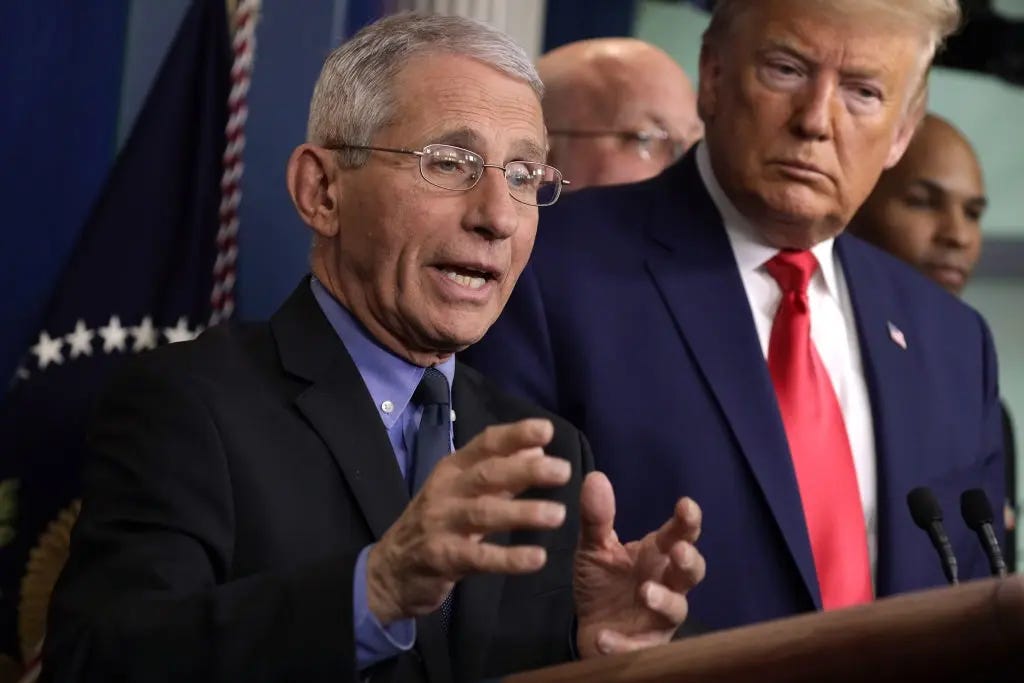In Fighting Coronavirus, Shift Decision-Making Away From Politicians To Experts
By Garett Jones
Public health is too important to leave solely to politicians. The big decisions on how to respond to the COVID-19 pandemic—including whom to quarantine, what to shut down, and for how long—should be made by panels of experts, not by elected officials.
This isn’t an unrealistic proposition: It’s how modern democracies already make many of their toughest decisions. When democracies want calmer, clearer-headed policy choices, they turn away from politicians and toward councils led by people who are appointed for long terms and insulated from the pressure of voters and elections. Whether we’re talking about an independent judiciary or an independent central bank, the recipe is the same: long terms (six years at least, ten is better), a medium-size number of members (rarely more than a dozen, seven is a good starting point), and quite a lot of power to enforce any decisions made.
In the United States, for instance, it’s been obvious for weeks that Dr. Nancy Messonnier of the Centers for Disease Control and Prevention and Dr. Anthony Fauci of the National Institutes of Health were far ahead of elected officials in understanding the threat of COVID-19 and how to best respond. If they or other widely respected public health experts had had the legal authority to close schools and public meetings, to curtail travel, to purchase necessary medical equipment, and the like, America would be substantially ahead in its response. Experienced public health experts—with a mix of technical skill and bureaucratic acumen—would be far better decision-makers than politicians during a public health crisis, especially when the crisis lands in an election year.
Public health independence is at least as important as central bank independence, and mature democracies should consider creating public health boards with the full suite of powers needed to respond to pandemics and other public health crises. A small body of experts chosen by elected officials but then serving independently, with guaranteed job security for many years—that’s the right balance between democratic control and elite control.
In my new book, 10% Less Democracy: Why You Should Trust Elites a Little More and the Masses a Little Less, I offer evidence that election years are times when politicians tend to make particularly bad decisions and that judges and central banks are better at their jobs when they’re kept further away from those same politicians.
The ancient Greek philosopher Aristotle had a word for the kind of government that blended control by the masses with control by the elite few: he called it polity. Aristotle thought that in many cases, polity was the best form of government. Right now, handing more power, more control, over to an independent Public Health Board would be a step toward Aristotle’s polity, and a step toward better, vastly more competent public health policy.


